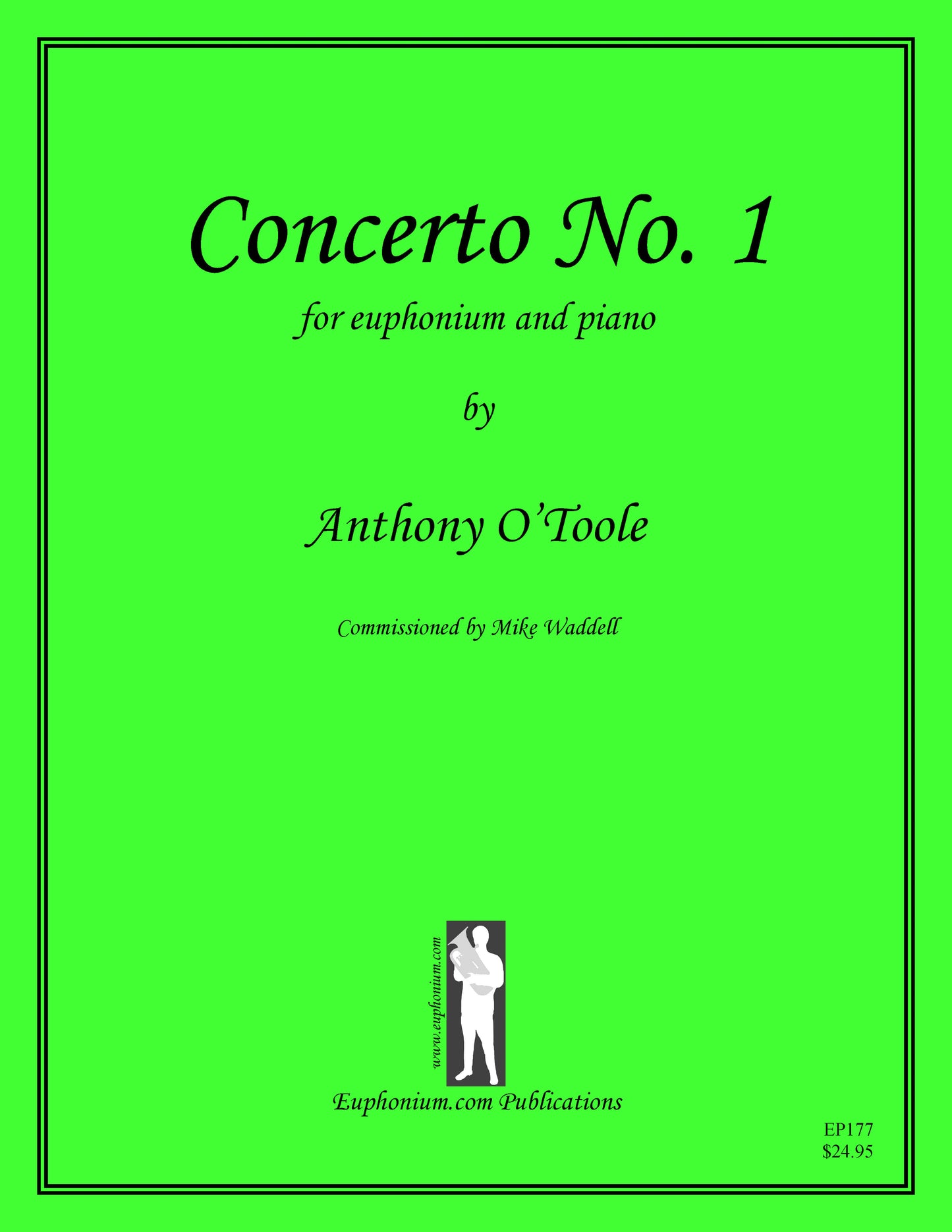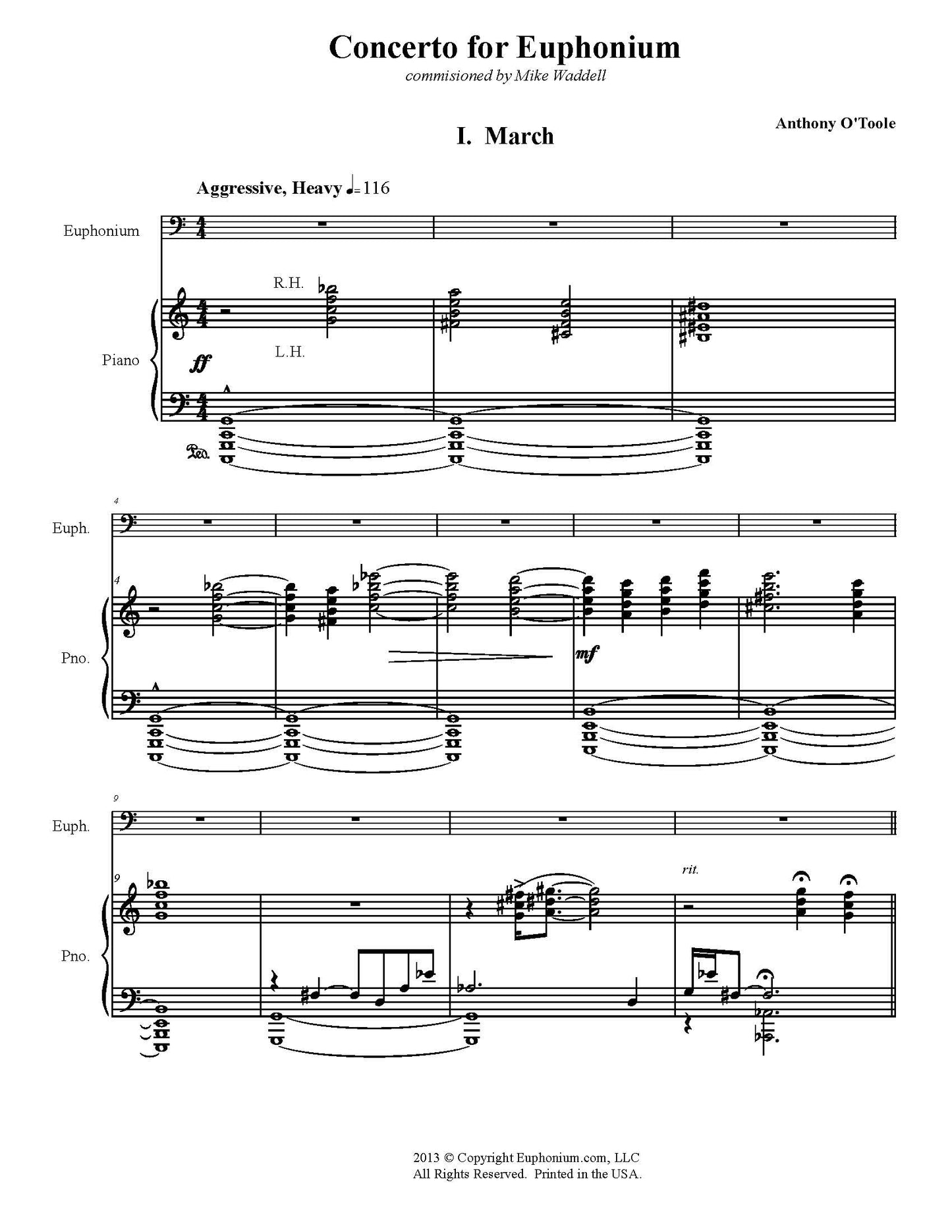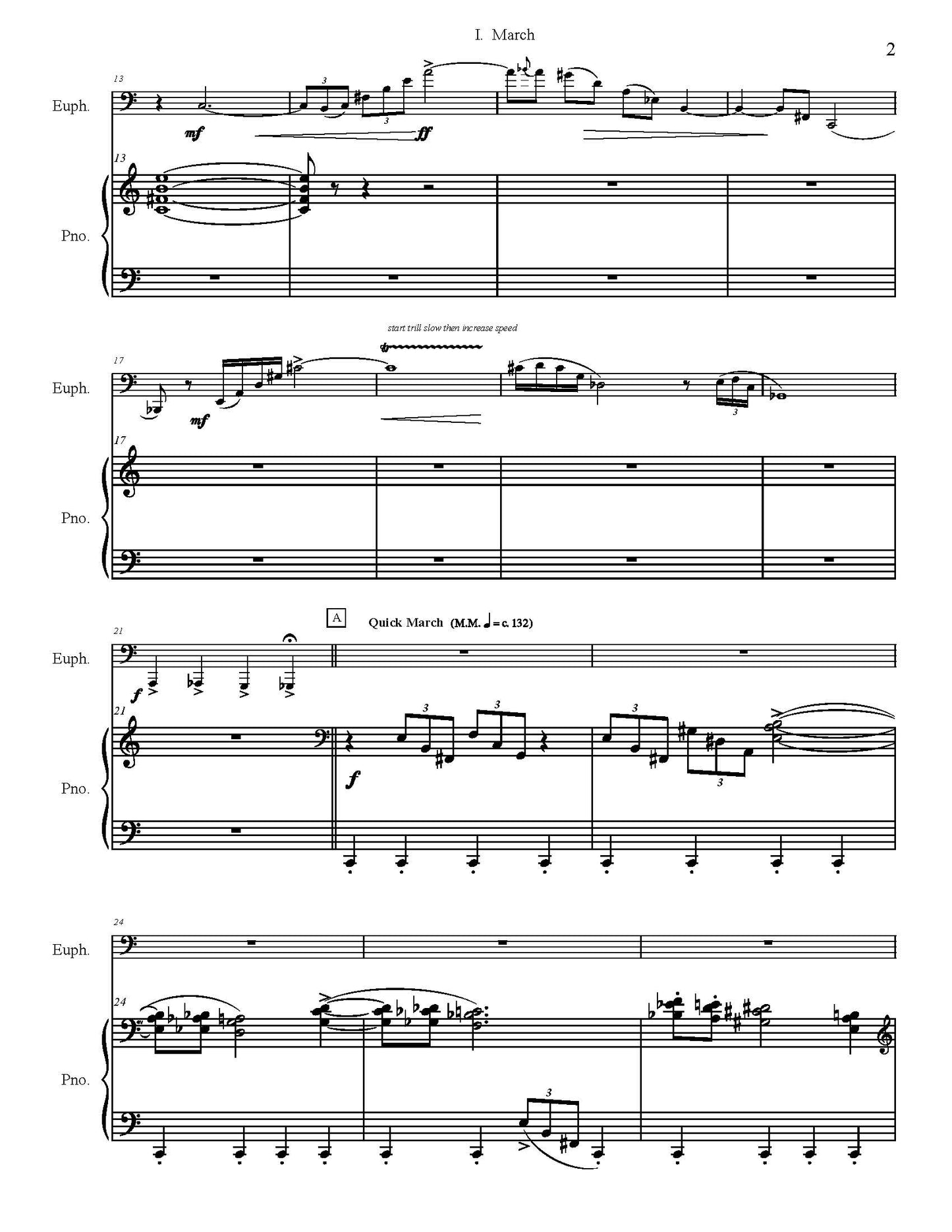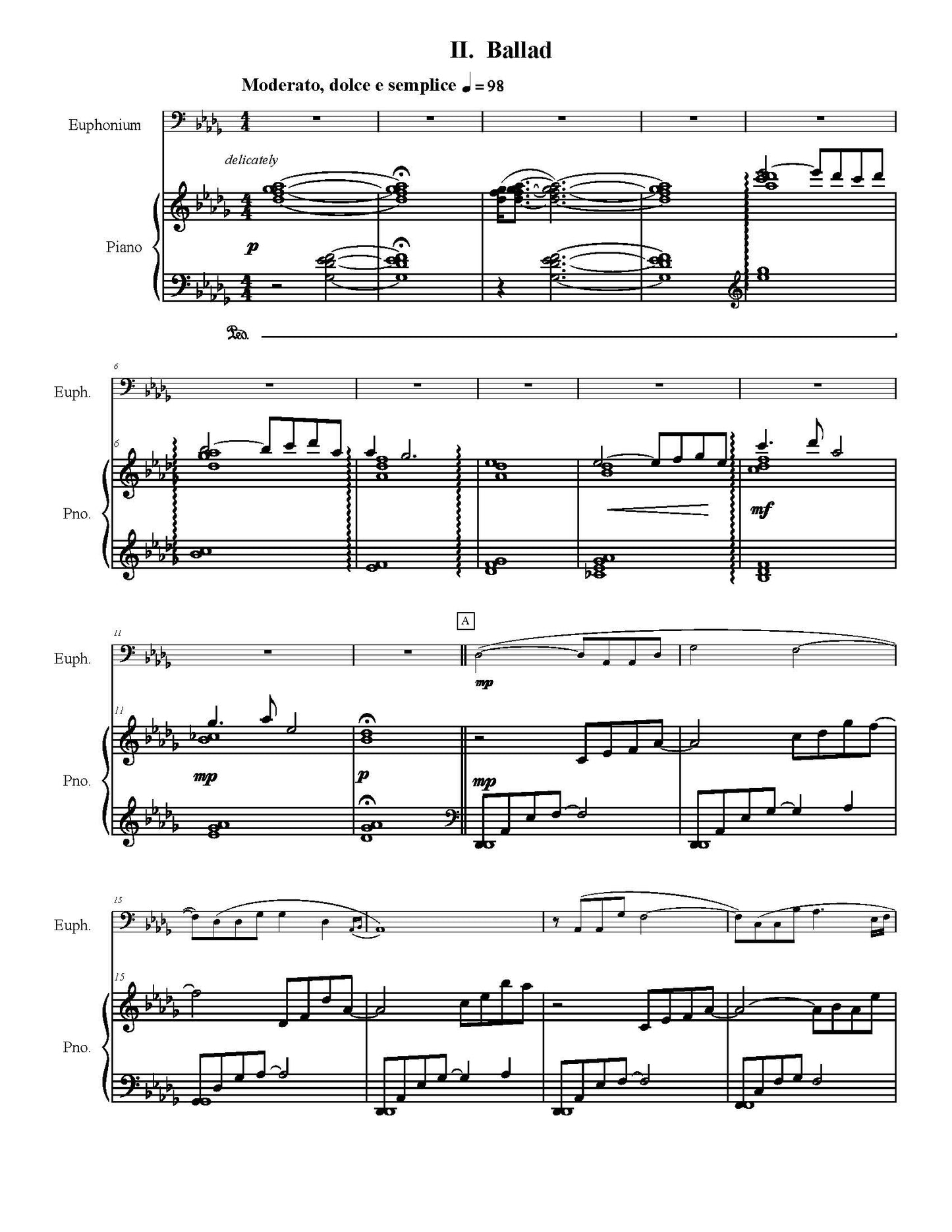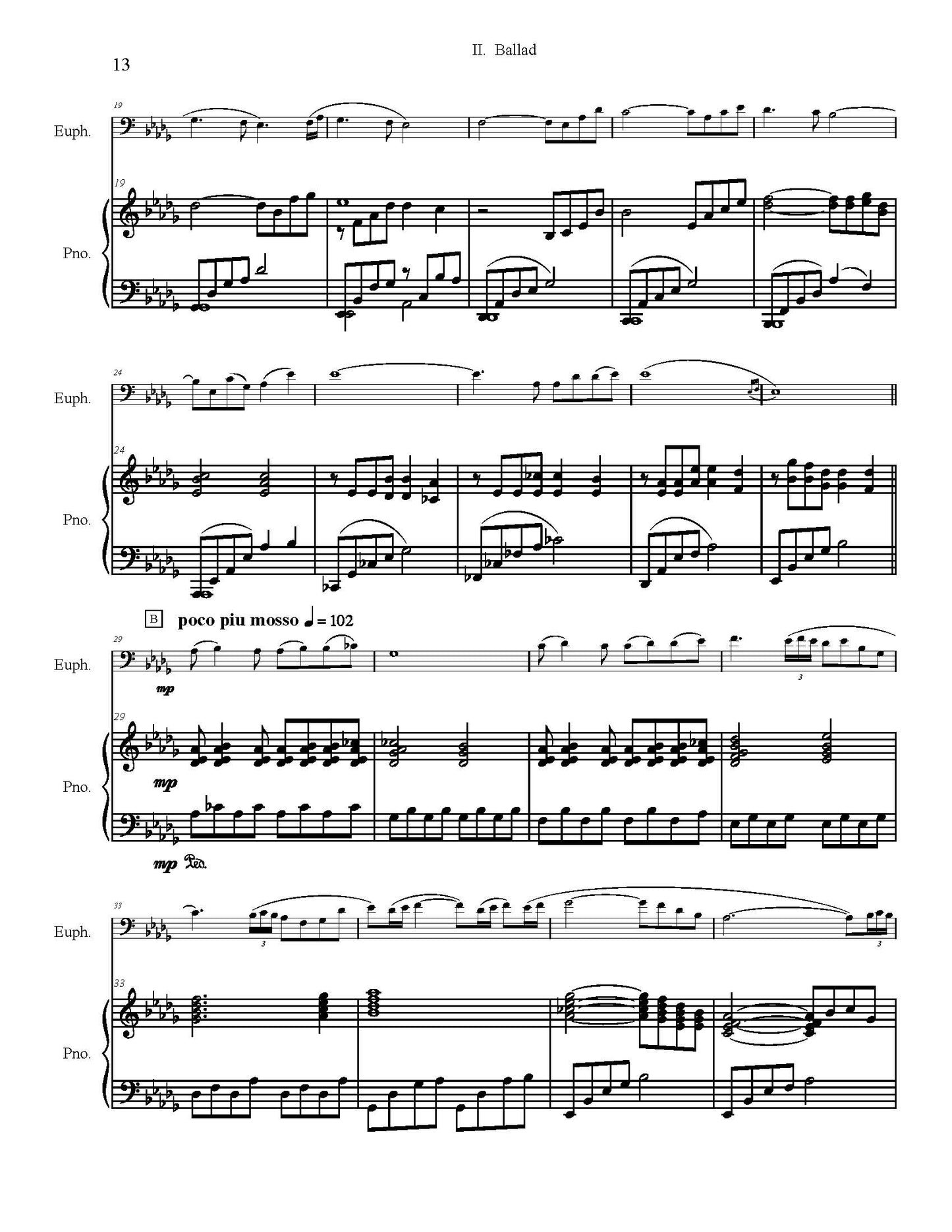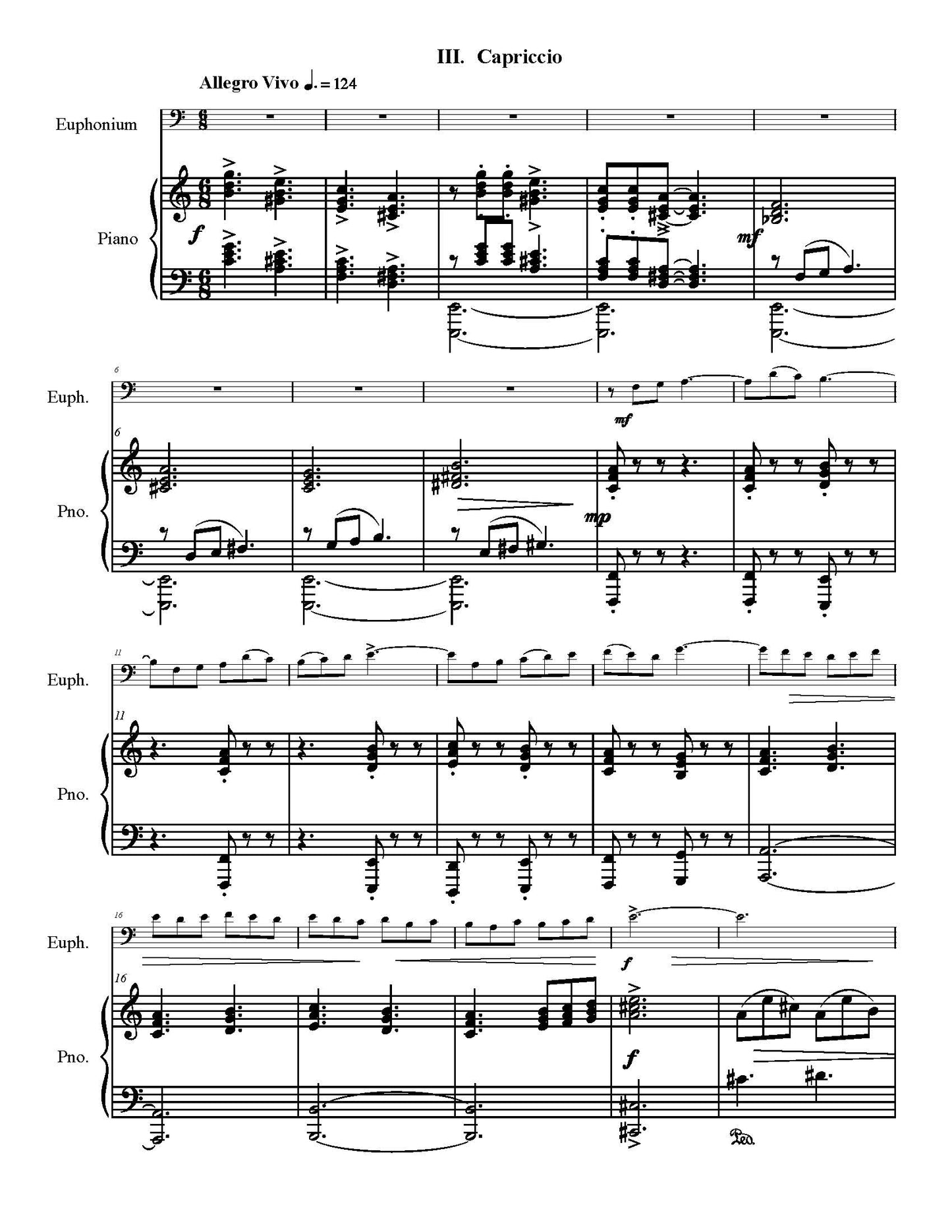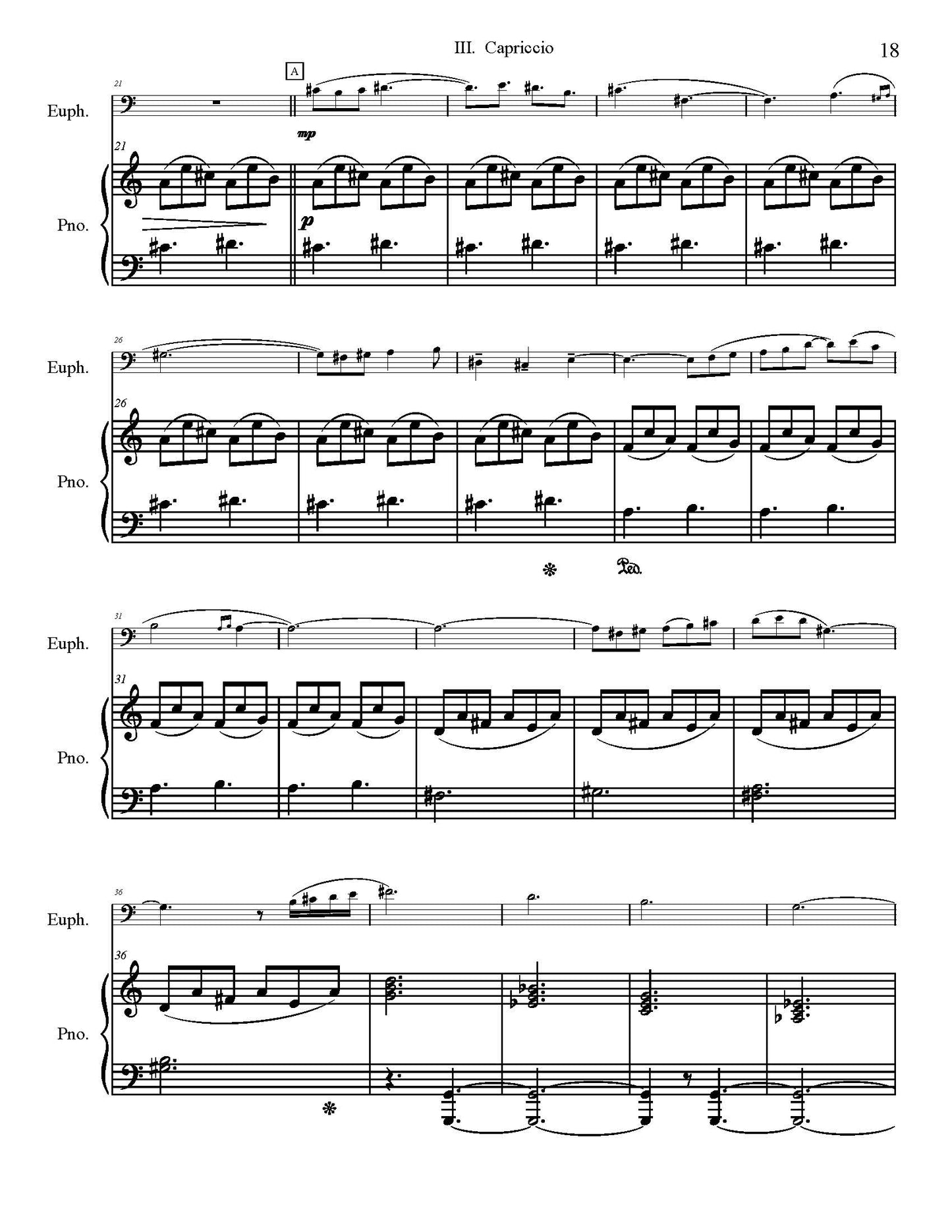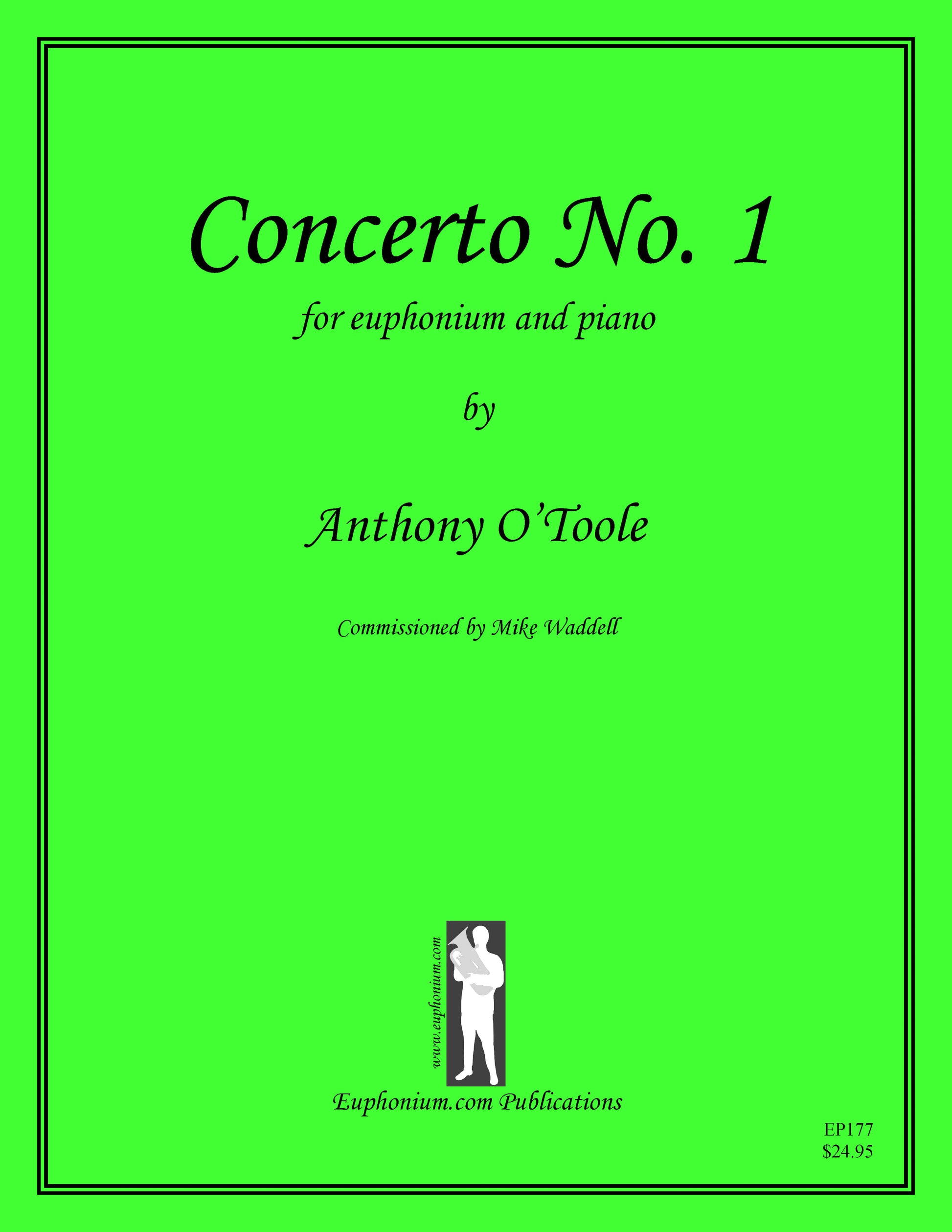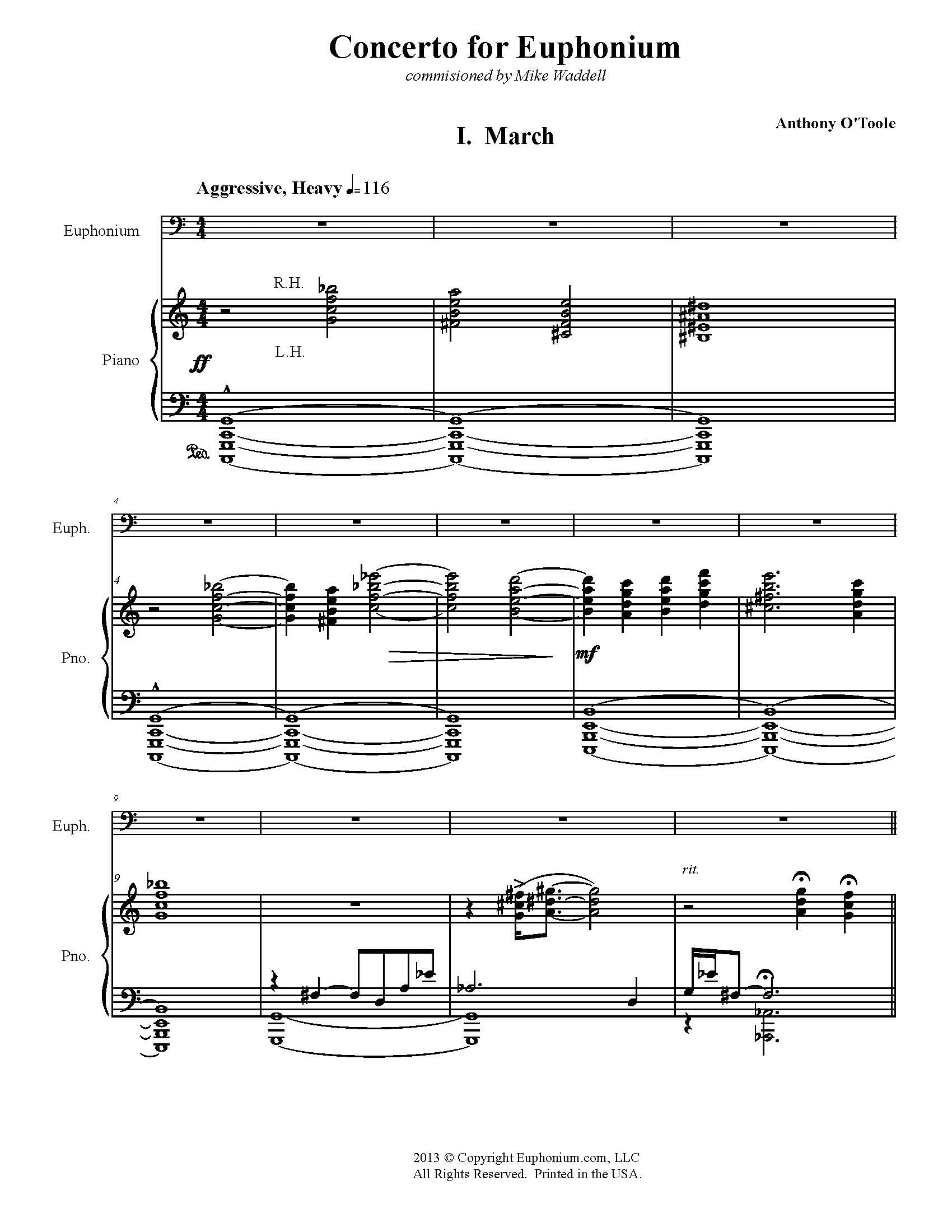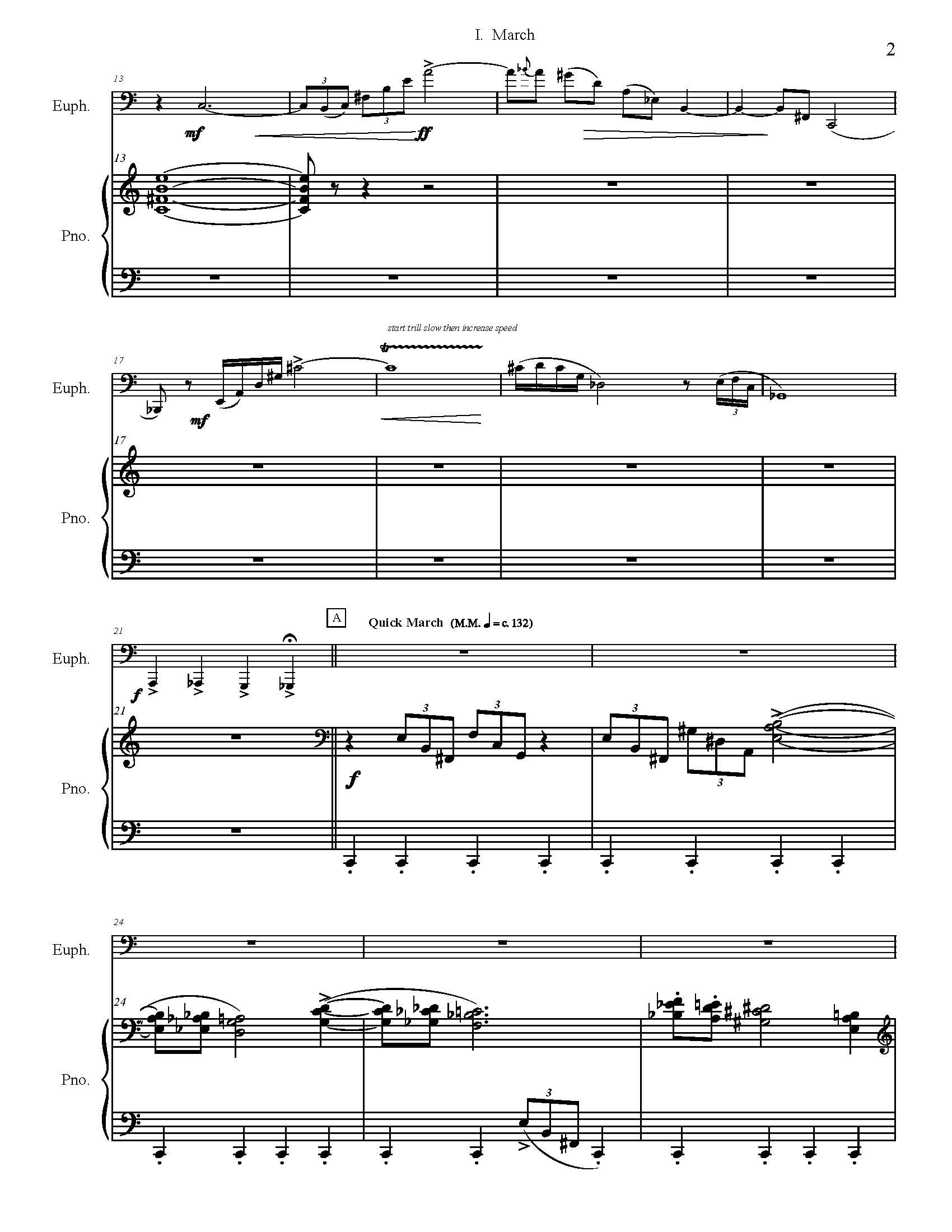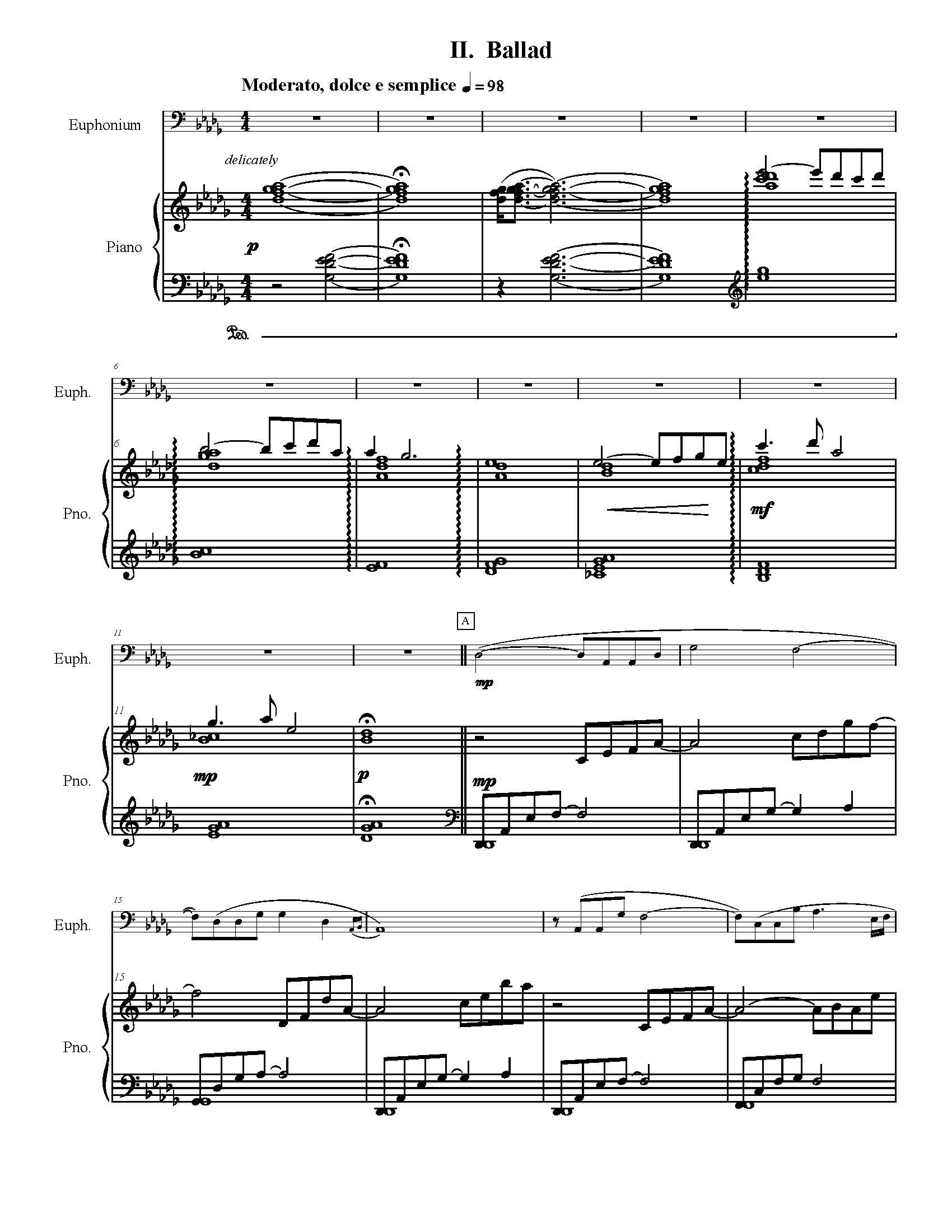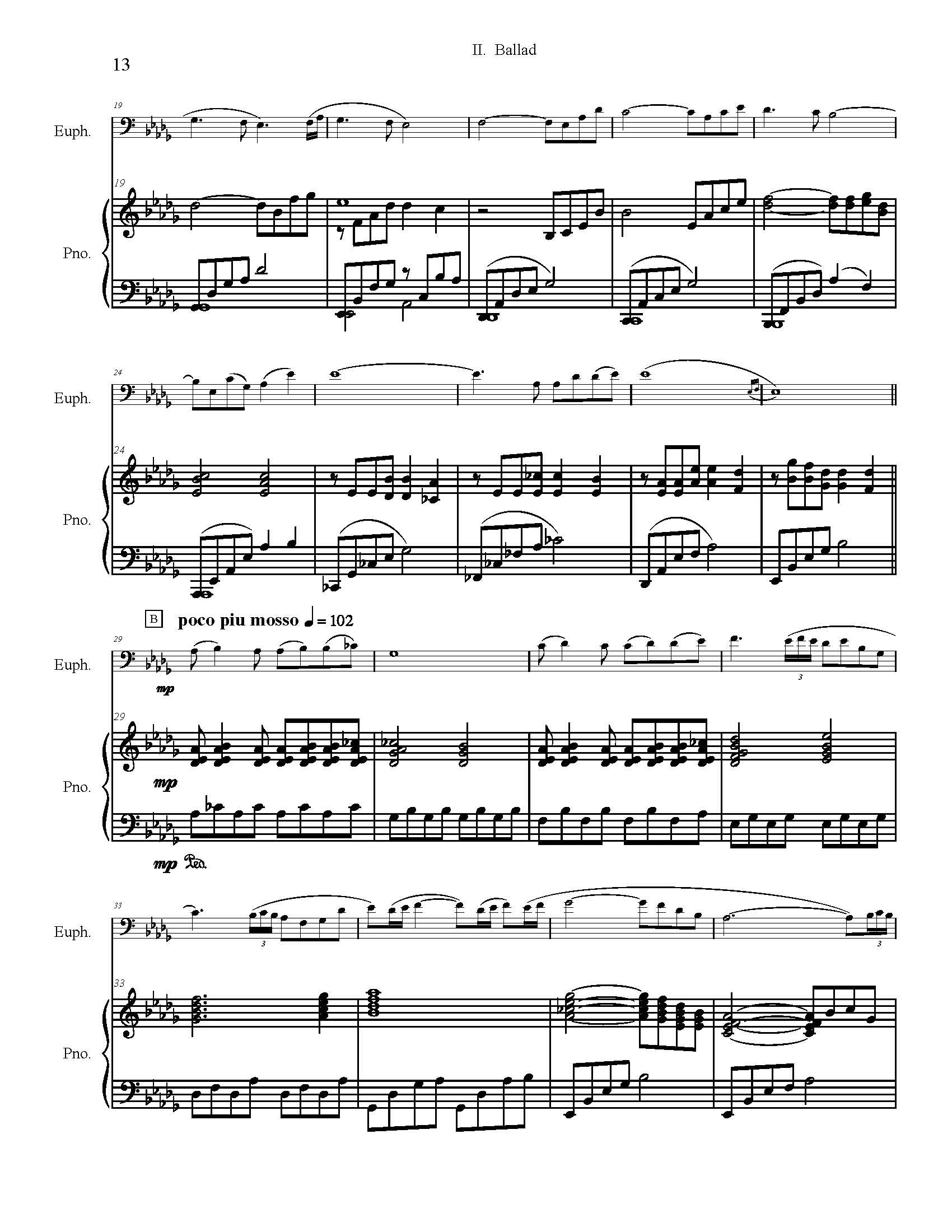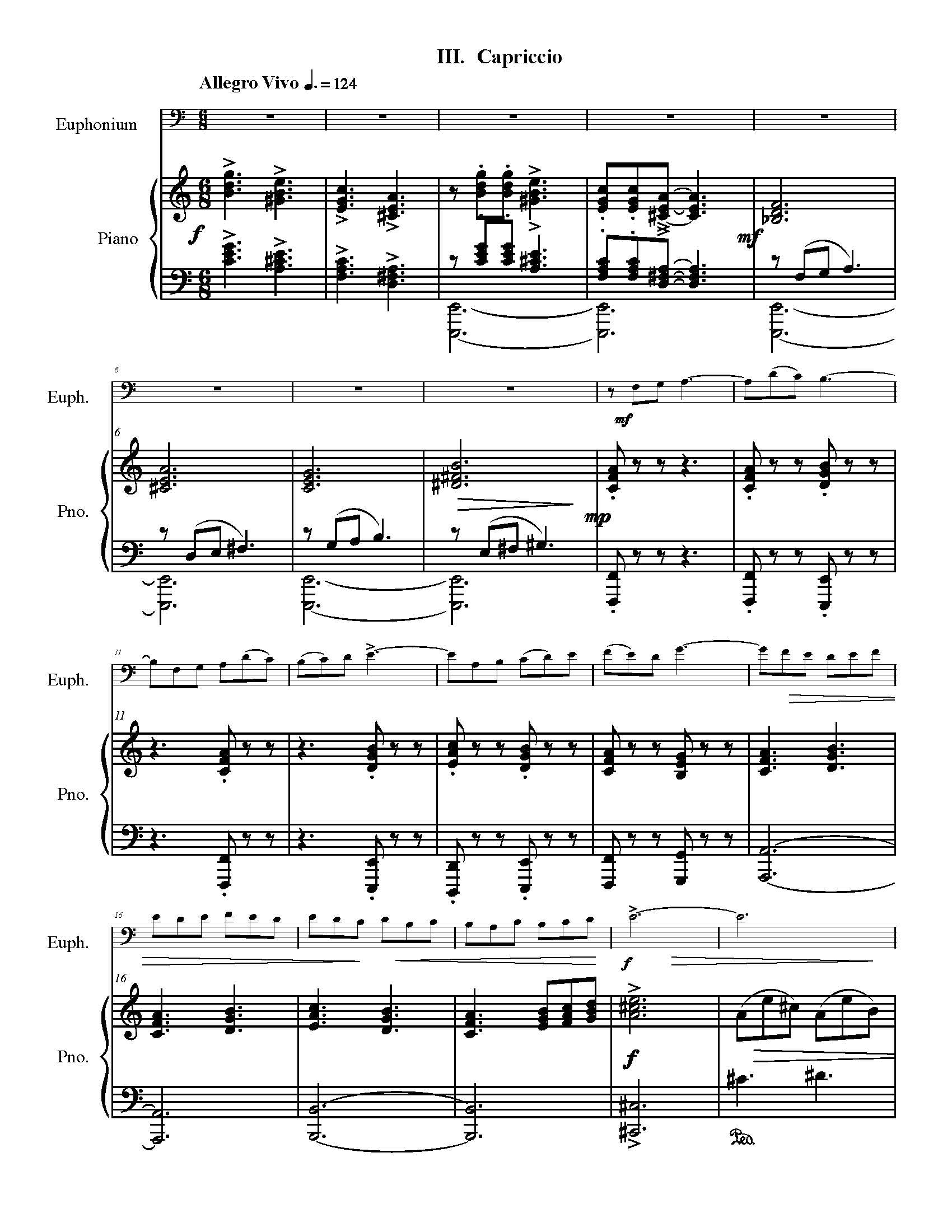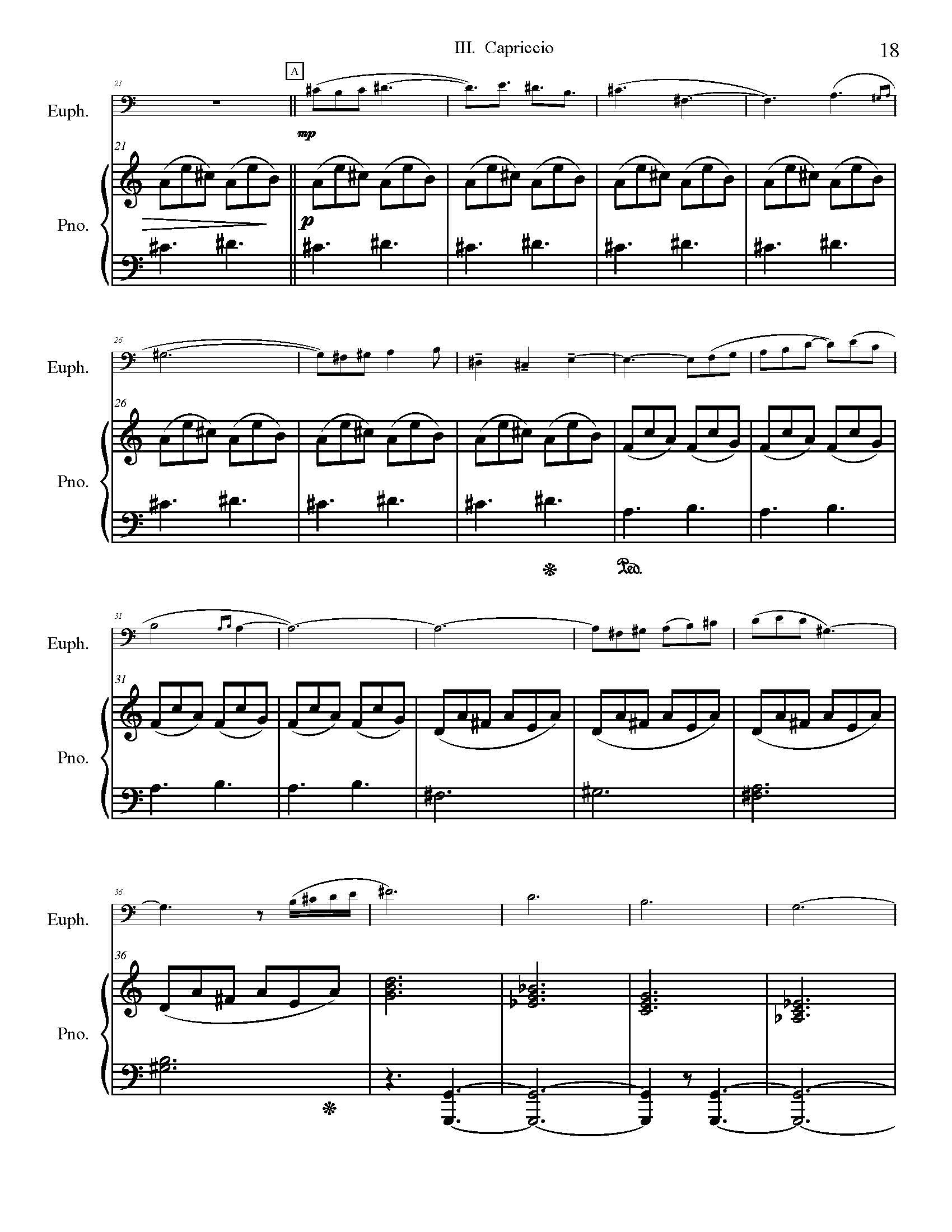Euphonium.com Publications
O'Toole, Anthony - Euphonium Concerto No. 1
O'Toole, Anthony - Euphonium Concerto No. 1
Regular price
$24.95 USD
Regular price
Sale price
$24.95 USD
Unit price
per
Shipping calculated at checkout.
Couldn't load pickup availability
Difficulty: IV Length: 15:00
In the spring of 2009, I was commissioned to compose a Concerto for Euphonium at the request of Mike Waddell. I completed the work that summer and it was premiered a year later with piano, then later premiered with Mike and the Indiana University of Pennsylvania Wind Ensemble conducted by Dr. Jack Stamp. The composition is in 3 parts. The first movement, March, has a heavy introduction in the piano/ensemble. This movement begins with a thunderous drone in the low register of the ensemble, bass drum and gong while the rest of the ensemble plays descending stacks of 4ths. Out of this introduction begins the opening cadenza of the concerto. After this cadenza, the March begins out of a low pulse in which it rises figure by figure to the big brass chords. This rise in register and intensity subsides to a quiet statement of the main melody. After much development and variation, the big brass chords return. The ensemble begins a short fugato which acts as a transition to the B section which pulses the opening stacks of 4ths with a ‘walking’ bass line. This B section’s lines and melodies are smoother and seductive but still maintain the march feel. This march feel eventually comes to a halt before the low pulse returns and the ensembles builds from the bottom up yet again. After this final push the tempo gets faster and the A melody returns in a much ‘flashier’ form. The march ostinato of the B section returns again while the A melody continues soaring over it. The march begins to wind down and dies away to a single note in the snare drum and low winds. The section movement, Ballad features beautiful melodies and harmonies. The movement opens with shimmering clusters in the key of Db, as requested by Mike. As it is both of our favorite (major) keys. The last movement, Capriccio, shows off the technical ability of the euphonium. The conclusion of this movement contains a recapitulation of introduction of the March with the theme of the Capriccio. - Anthony OToole
